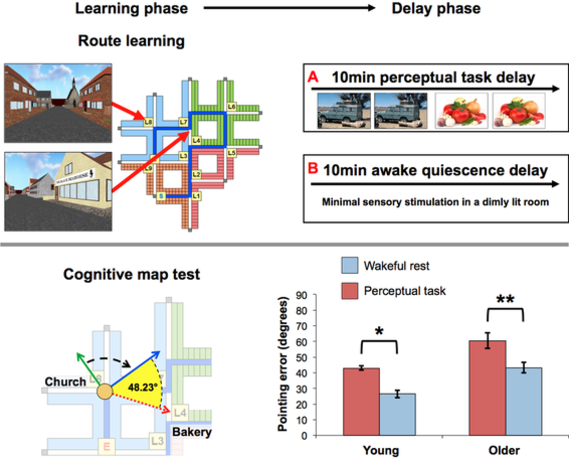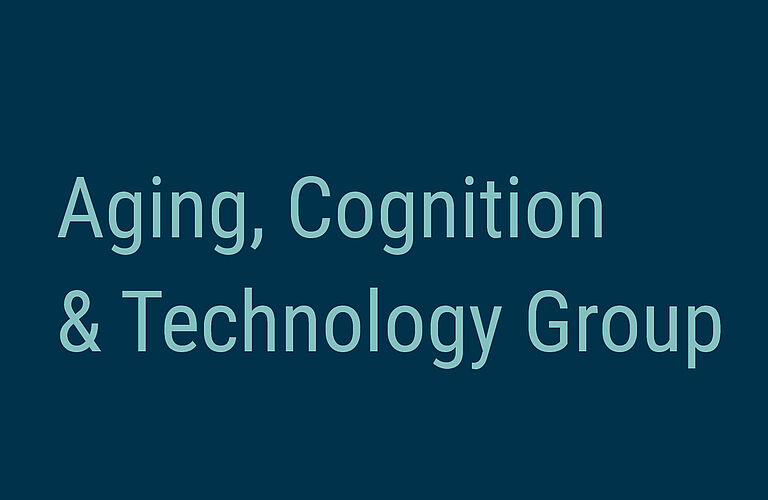How can we improve navigational abilities?
Problems with spatial orientation are common among older adults, which can severely compromise their mobility and social participation. In addition, 6 out 10 patients with Alzheimer’s disease frequently get lost even in their familiar surroundings. In collaboration with other groups, we therefore explore how interventions such as VR based navigation games and interventions targeting memory consolidation can improve the formation and use of spatial memories. In the long-term, this research could lead to new approaches for supporting independence and mobility in old age.
One particularly striking example is the demonstration that a brief period of wakeful resting after learning can substantially enhance memory for a learned route through a virtual environment, even when subjects are tested seven days later (Craig et al., 2015). The benefits of rest also enable novel inferences (Craig et al., 2016a), which is a key feature of successful memory integration. Moreover, this benefit is not only present in younger people but also boosts memory formation in older adults (Craig et al., 2016b), demonstrating its suitability for counteracting memory decline in old age.

Effects of wakeful resting on spatial memory.
In the study by Craig et al. (2016b), participants learned a route through a virtual environment before performing either a 10 minute perceptual task or undergoing 10 minutes of wakeful resting. In a subsequent cognitive mapping task (lower panels), both younger and older adults in the wakeful rest group performed significantly better than their counterparts in the task group. Together, these findings indicate – as suggested by many animal studies – that boosting offline memory consolidation via wakeful resting can help improve navigational functioning, even in old age.
Key references
- Craig, M., Dewar, M., Della Sala, S. & Wolbers, T. (2015). Rest boosts the long-term retention of spatial associative and temporal order information. Hippocampus, 25(9): 1017-1027.
- Craig, M., Dewar, M., Harris, M.A., Della Sala, S. & Wolbers, T. (2016a). Wakeful rest promotes the integration of spatial memories into accurate cognitive maps. Hippocampus, 26(2):185-193.
- Craig, M., Wolbers, T., Harris, M. A., Hauff, P., Della Sala, S., & Dewar, M. (2016b). Comparable rest-related promotion of spatial memory consolidation in younger and older adults. Neurobiology of Aging, 48, 143–152.
- Holzschneider, K., Wolbers, T., Röder, B. & Hötting, K. (2012). Cardiovascular fitness modulates brain activation associated with spatial learning. NeuroImage, 59(3): 3003-14.

